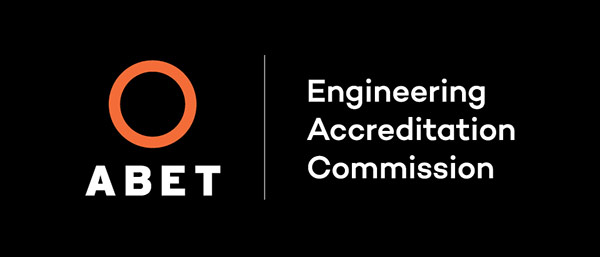 Civil Engineering Accreditation
Civil Engineering Accreditation
Our Civil Engineering Degree Program is accredited by the Engineering Commission of ABET, http://www.abet.org
Civil Engineering Bachelor of Science Program Mission Statement
The Mission of our Civil Engineering Bachelor of Science degree program is to educate students in the principles and methods essential to the practice and advancement of the interdisciplinary field of civil engineering. The program is proactive and continues to incorporate new and emerging paradigms in all aspects of teaching and education while maintaining rigorous standards in traditional approaches to engineered solutions of environmental problems.Our goal is to prepare students to apply and continually cultivate knowledge that will enable them to become successful practitioners, innovators and leaders in serving the needs of a complex society.
Program Educational Objectives
The educational objectives of our accredited Civil Engineering Bachelor of Science Program are to prepare civil engineering graduates to:
- Develop careers in civil engineering and other professionally related fields
- Seek additional professional training and personal development
- Apply their skills to develop innovative solutions and technologies
- Pursue professional licensure and/or certification
- Advance to become members of professional societies and future
leaders in their profession
To achieve the program educational objectives, the civil engineering program has adopted the following seven ABET student outcomes:
- An ability to identify, formulate, and solve complex engineering problems by applying principles of engineering, science, and mathematics
- An ability to apply engineering design to produce solutions that meet specified needs with consideration of public health, safety, and welfare, as well as global, cultural, social, environmental, and economic factors
- An ability to communicate effectively with a range of audiences
- An ability to recognize ethical and professional responsibilities in engineering situations and make informed judgments, which must consider the impact of engineering solutions in global, economic, environmental, and societal contexts
- An ability to function effectively on a team whose members together provide leadership, create a collaborative and inclusive environment, establish goals, plan tasks, and meet objectives
- An ability to develop and conduct appropriate experimentation, analyze and interpret data, and use engineering judgment to draw conclusions
- An ability to acquire and apply new knowledge as needed, using appropriate learning strategies.
To review enrollment and graduation data for the civil engineering program at Lehigh, click here.
 Environmental Engineering Accreditation
Environmental Engineering Accreditation
Our Environmental Engineering Degree Program is accredited by the Engineering Commission of ABET, http://www.abet.org
Environmental Engineering Bachelor of Science Program Mission Statement
The Mission of our Environmental Engineering Bachelor of Science degree program is to educate students in the principles and methods essential to the practice and advancement of the interdisciplinary field of environmental engineering. The program is proactive and continues to incorporate new and emerging paradigms in all aspects of teaching and education while maintaining rigorous standards in traditional approaches to engineered solutions of environmental problems. Graduates of the program possess the technical expertise required to maintain a healthy balance between societal welfare, economic growth and the environment surrounding us.
Program Educational Objectives
The educational objectives of our accredited Environmental Engineering Bachelor of Science Program are to prepare environmental engineering graduates to:
- Develop careers in environmental engineering and other professionally related fields
- Seek additional professional training and personal development
- Apply their skills to develop innovative solutions and technologies
- Pursue professional licensure and/or certification
- Advance to become members of professional societies and future
leaders in their profession
To achieve the program educational objectives, the environmental engineering program has adopted the following seven ABET student outcomes:
- An ability to identify, formulate, and solve complex engineering problems by applying principles of engineering, science, and mathematics
- An ability to apply engineering design to produce solutions that meet specified needs with consideration of public health, safety, and welfare, as well as global, cultural, social, environmental, and economic factors
- An ability to communicate effectively with a range of audiences
- An ability to recognize ethical and professional responsibilities in engineering situations and make informed judgments, which must consider the impact of engineering solutions in global, economic, environmental, and societal contexts
- An ability to function effectively on a team whose members together provide leadership, create a collaborative and inclusive environment, establish goals, plan tasks, and meet objectives
- An ability to develop and conduct appropriate experimentation, analyze and interpret data, and use engineering judgment to draw conclusions
- An ability to acquire and apply new knowledge as needed, using appropriate learning strategies.
To review enrollment and graduation data for the environmental engineering program at Lehigh, click here.
